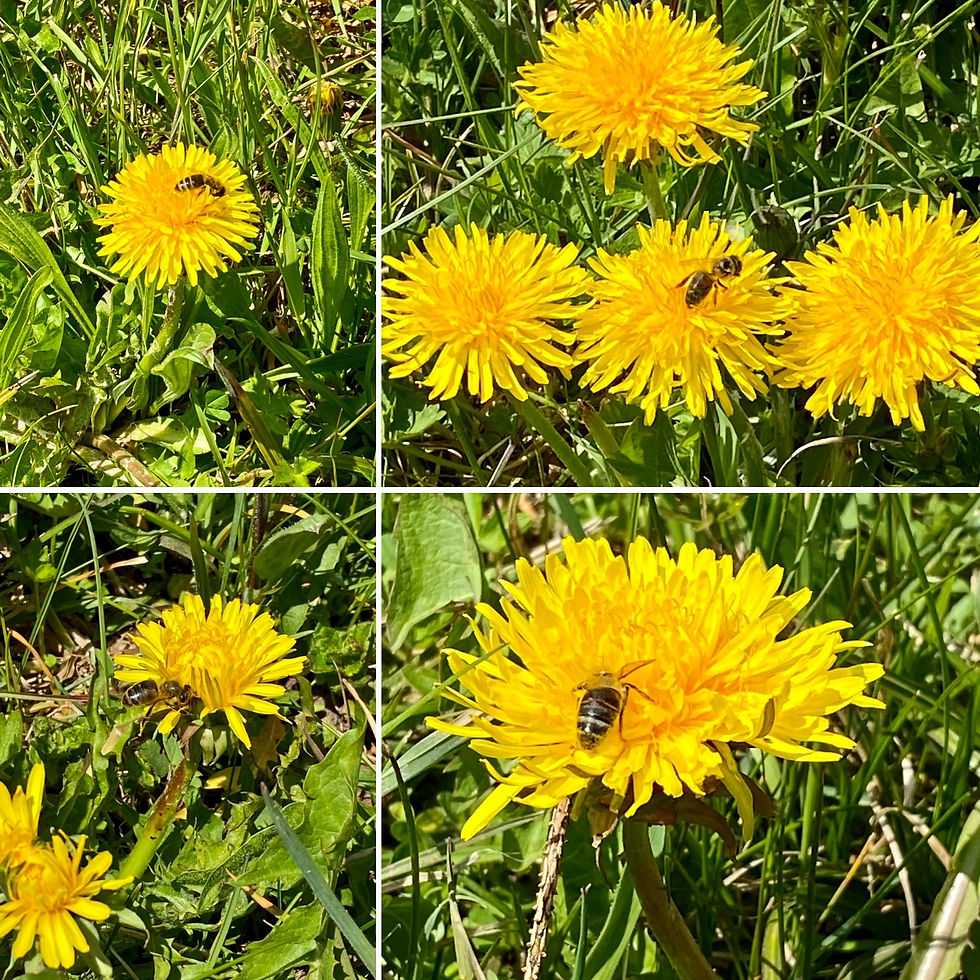🐝 To Be a Bee 🐝
- matejak
- Apr 22, 2021
- 3 min read

🌎🌍🌏 Today is the Earth Day. Earth Day is an annual event on April 22 to demonstrate support for
environmental protection. First held on April 22, 1970, it now includes a wide range of events coordinated
globally. The Earth Day 2021 theme is Restore Our Earth and features five primary programs: The Canopy
Project, Food and Environment, Climate Literacy, the Global Earth Challenge, and The Great Global CleanUp.
🐝 Along with other pollinators, a lively and strong bee population ensures a healthy ecosystem and allows
biodiversity to flourish. In fact, a third of our food depends on bees as they are the most important pollinators
for plants. They are therefore indispensable for agriculture and the world's food security.
🐝 Beekeepers long have struggled to protect their hives from parasites, viruses, insecticides, and other
colony-destroying threats. All these factors, as well as climate change, have been linked to colony collapse
disorder, which emerged more than a decade ago and destroyed 30 percent to 90 percent of some
beekeepers’ hives.

🐝 When a bee collects nectar and pollen from the flower of a plant, some pollen from the stamens—the male
reproductive organ of the flower—sticks to the hairs of her body. When she visits the next flower, some of this
pollen is rubbed off onto the stigma, or tip of the pistil—the female reproductive organ of the flower. 🐝 Bees make excellent pollinators because most of their life is spent collecting pollen, a source of protein that
they feed to their developing offspring. When a bee lands on a flower, the hairs all over the bees' body attract
pollen grains through electrostatic forces.
🐝 When a bee dies, bees tend to their dead, either by removing them from the colony or burying them. Since
these social insects form densely crowded societies that face many pathogens, disposing of the dead is as a
form of preventive medicine.

🐝 Worker bees gather both pollen and nectar from flowers to feed to the larvae and other members of the
colony. Nectar is the sweet fluid produced by flowers to attract bees and other insects, birds and mammals.
Worker bees drink the nectar and store it in a pouch-like structure called the crop.
🐝 Yes, bees do poo, too; however, they are very clean, polite and hygienic animals and will groom themselves
and each other like cats to maintain their pristine yellow fur coats.
🐝 4,000 bees together weigh only one pound. Each of our hives has 50,000 bees, weighing 12 pounds
together.

🐝 Incredibly, on average a worker bee will produce 1/12th of a teaspoon of honey in their lifetime. So it takes
12 worker bees to produce a single teaspoon of honey!
🐝 The life span of worker honey bees ranges from five to seven weeks. The queen bee has a very important
function within the colony, and has the longest life span by far. While the average life span of a queen bee is
two to five years, queen bees have been known to live up to seven years, although this is rare.
🐝 If the queen is producing hungry, lazy, sterile males, then killing her allows one of her daughters to become
a new queen, producing genuinely reproductive male heirs. The workers can then help the new queen
perpetuate their collective genetic legacy.
🐝 Bees may have brains the size of poppy seeds, but they're able to pick out individual features on human
faces and recognize them during repeat interactions.

🐝 If you find a tired bee in your home, a simple solution of sugar and water will help revive an exhausted bee.
Simply mix two tablespoons of white, granulated sugar with one tablespoon of water, and place on a spoon for
the bee to reach.
🐝 Bees can see some colours, though they have very different colour vision than humans. Their eyes are
more sensitive to blue and purple. Bees can see ultraviolet light, which is advantageous as flowers reflect large
amounts of ultraviolet light.
🐝 Bee happy and let bees bee happy, too. We can do it by understanding the nature better, respect it and
appreciate its rules. We are nature, we are only one of the species, very dependable on nature and bees. And
let's not forget how easily dispensable we are. Or how much good can we do to nature to make ourselves
happy, healthy, useful to nature and perhaps even indispensable.






















Comments